Last updated on March 2nd, 2025
Ideal boiler condensate traps can get very dirty and eventually blocked if they are not cleaned out. They get full of all sorts of weird gunk and sometimes bees and other insects that get in through the flue terminal from outside. I have been servicing boilers for over a decade and I have cleaned my fair share of condensate traps.
Video guide
Step-by-step guide
If you have your boiler serviced regularly then your condensate trap should be cleaned out then. If not, cleaning it every year or so should stop it from getting blocked and causing your boiler to lock out.
To clean a condensate trap you need to remove it from the boiler, run it under a tap and keep shaking it while filling it with cold water and emptying it.
1. Remove the trap
- Turn the boiler off and isolate the electric supply at the spur if possible
- Loosen the two screws on the bottom corners of the boiler
- Unclip the casing from underneath and remove the casing
- Unclip the control panel and pull forward
- Remove the black rubber tube on top of the condensate trap
- Twist the trap anti-clockwise then lift and remove it from the boiler
If you have an older Ideal Logic boiler, you might have a screw-on cap under the boiler keeping the trap secured to the boiler.
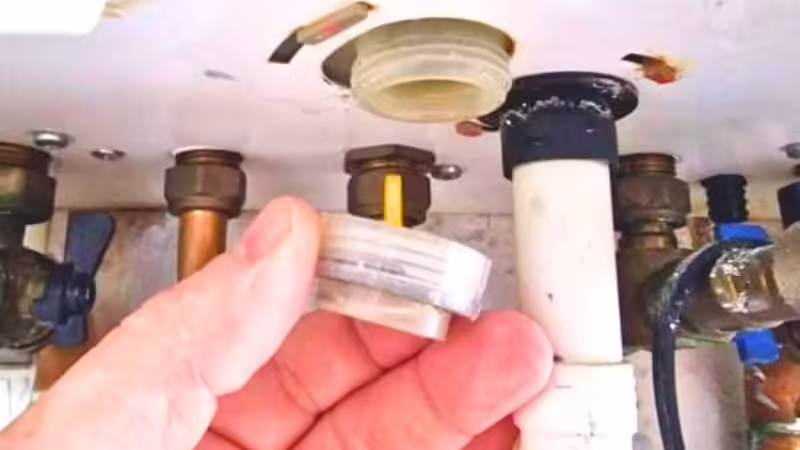
This cap will need to be unscrewed anti-clockwise and removed to remove the trap. Make sure to have a bucket underneath to catch the condensate water.
2. Clean and refit the trap
- Pour out the dirty condensate wastewater from the trap into a sink and fill it with fresh water
- Shake the trap vigorously and empty
- Repeat until all the gunk inside the trap is removed
- Fill with water and hold straight above the sink, let the water come out of the bottom
- Fit over the rubber seal and make sure it sits in the seal properly and the other bit sits in the slot
- twist the trap clockwise to lock it in place
- Refit the black rubber tube with the double pipe end sitting in the trap
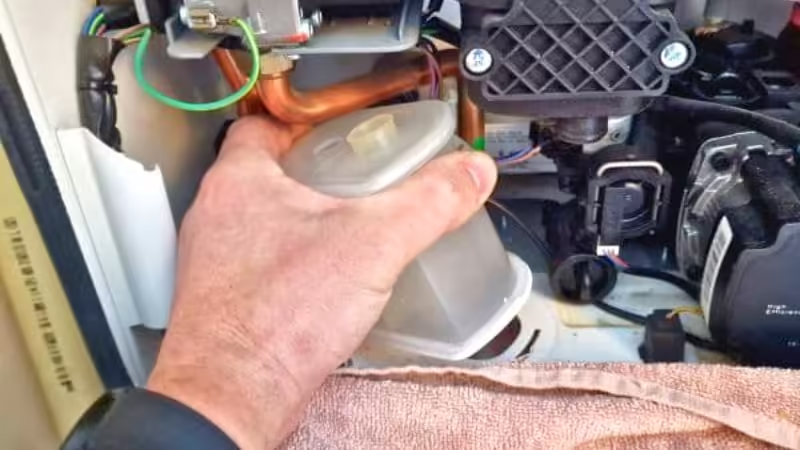
Trap full of water
A condensate trap should always be full of condensate wastewater. This is completely normal. When it fills with water from the flue it will partially empty out of the bottom and down the condensate pipe to the drain. Having the condensate trap full of water stops the poisonous flue fumes from coming through the trap.
This is what traps are made for. Just like traps on sinks are always full of water to stop smells and creepy crawlies coming through. If your condensate trap is not emptying, it must be blocked.
Trap blocked
If your trap is blocked then you need to clean it out. If it’s blocked with solid substances that can’t be removed then you must replace the trap. Cleaning or replacing the trap will unblock it but if it’s still not working, your condensate pipe is likely blocked. You will need to find and fix the blockage in the pipe.
If your condensate pipe is frozen then this will need to be thawed out before resetting the boiler. Check out my frozen pipe pipe guide here.
Ideal boiler guides
Summary
Cleaning an Ideal Logic condensate trap is easy but it is recommended to get your boiler serviced every year and the trap will be cleaned during the service.
If you're just starting as a heating engineer then this will be one of the easiest jobs to learn and very common as most new build houses fit Ideal logic boilers.
Feel free to ask any questions in the comments below, and I’ll do my best to help. If you found this post helpful, please consider sharing it.
FAQs
Where is the condensate trap on my Ideal boiler?
The condensate trap on an Ideal boiler is inside and on the very bottom of the boiler. You must remove the boiler casing and pull down the control to see and access the condensate trap.
How do you stop a condensate pipe from freezing?
There are a few things you can do to stop a condensate pipe from freezing in the winter. The first and easiest thing to do is insulate it, and the best thing you can do is to fit a trace heating cable.
What happens if the condensate trap is blocked?
If your boiler condensate trap gets blocked, the condensate wastewater will not discharge and this will cause your boiler to lock out and stop working.
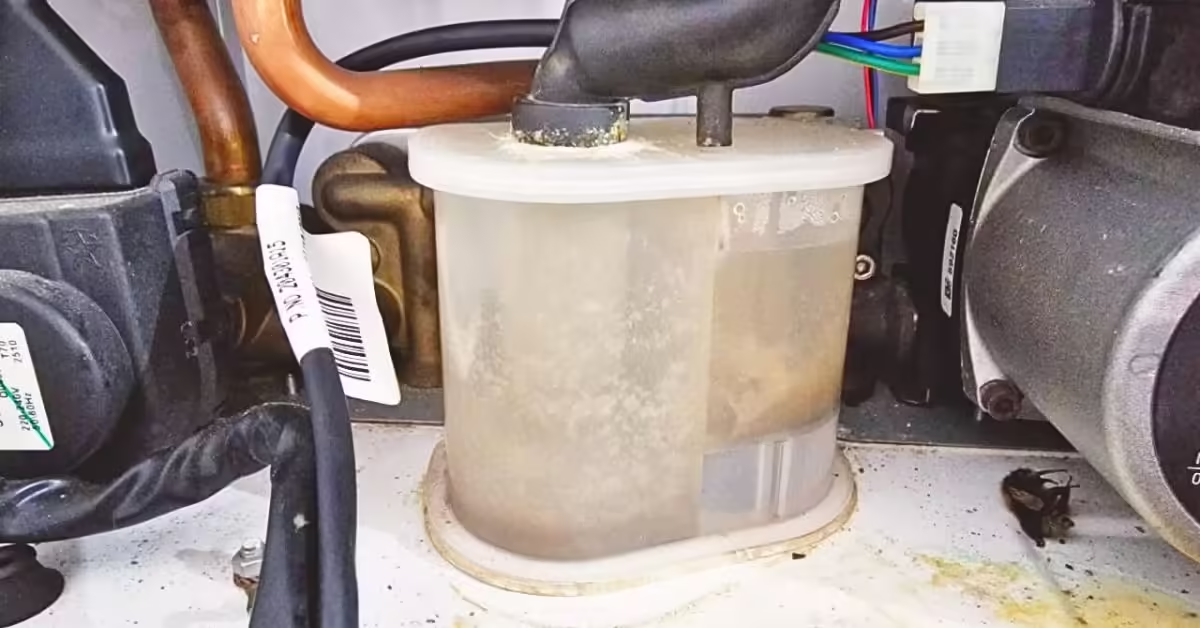

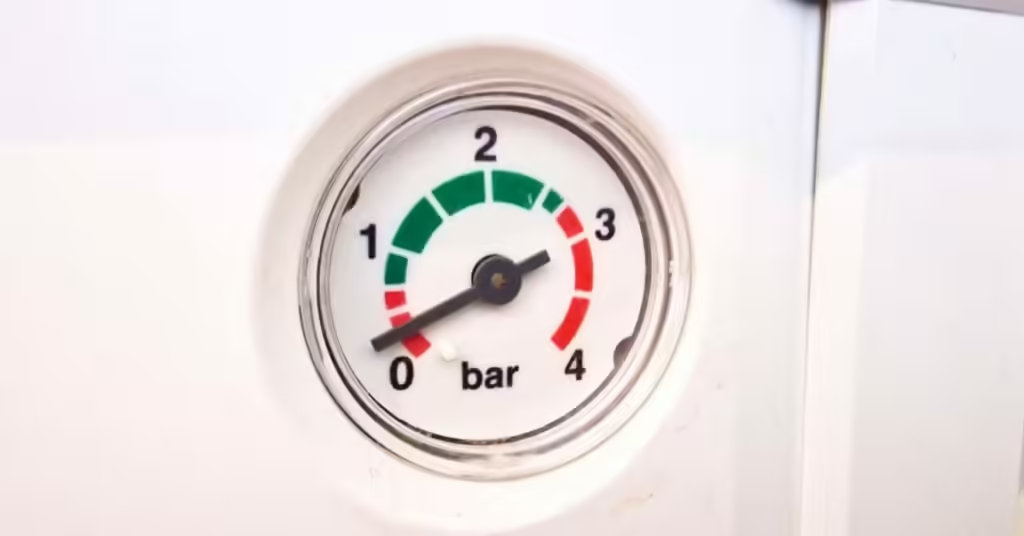
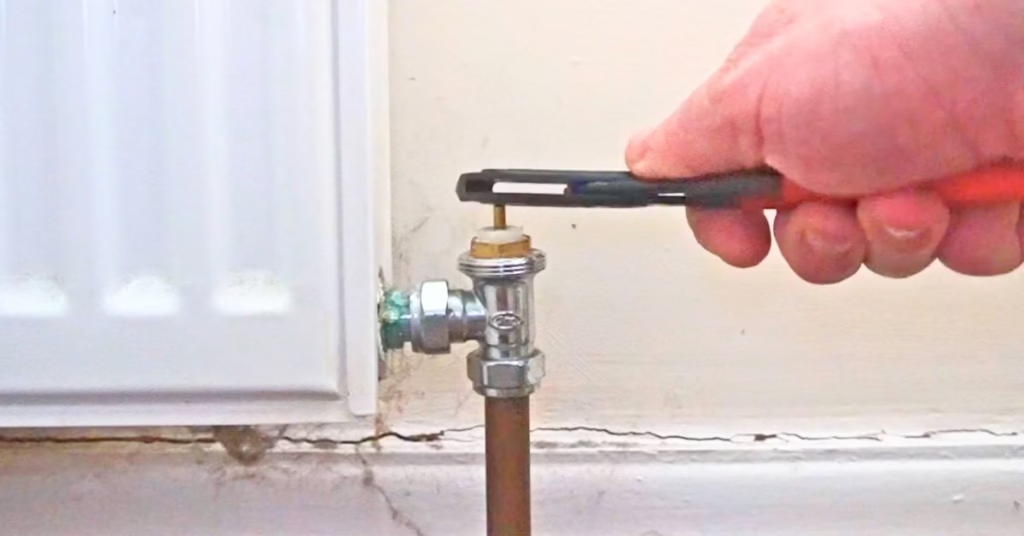
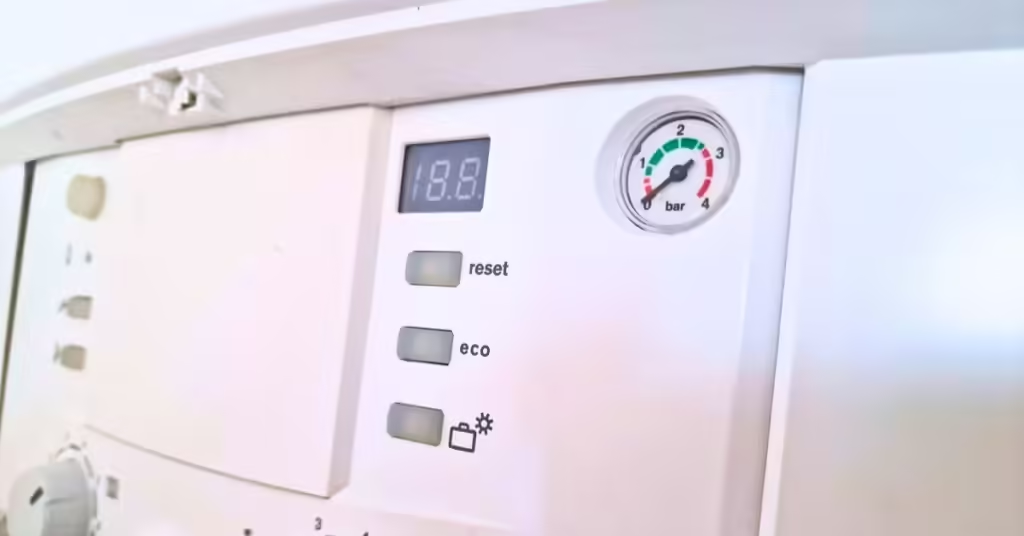
Hi Ian, so our Ideal boiler was showing L2 code. Called an engineer out who cleaned the trap just like you described above and started working. After a few hours it stopped again showing the L2 code. Checked th condensate pipe and it seems fine, no leaks or cracks. Also poured hot water outisde where it comes out from and seems fine. Any advice?
Hi, Thanks for the helpful video.
The outside part of my Ideal Logic Combi boiler’s condensation pipe has been freezing every night this week.
I’ve put pipe insulation over the outside part of the pipe, but it’s still freezing, so trying to figure out what I can do to improve this.
The fitters have put a U bend in the condensate pipe 2 feet below the boiler, (which is in an unheated garage). I feel that defeats the purpose of a siphonic trap within the boiler which as I understand it, functions as a U-bend already, but also keeps the condensate warm, then dumps it out so its less likely to freeze than a gradual trickle.
Is there any good reason why I shouldn’t remove the U-bend and put a straight pipe up to the condensate trap?
Thanks,
Iain
Hi Ian,
That works as a secondary trap, a backup in case the boiler trap fails. Whenever a condensate pipe is run to a waste pipe in the house, it should be fitted after the trap so that trap will stop any flue fumes from coming into the house if the boiler trap fails.
Hi
Just followed these instructions as IDEAL boiler had been giving L2 code. Put it down to weather initially (mega cold at the mo) but, turns out boiler not been serviced for 3 years, no external condensate pipe and so the condensate trap proved to be quite gunky.
Your website and instructions were super super helpful and we have heat and hot water again thanks to your advice. Just wanted to comment so you know how helpful it was and how much I appreciate it
Hi Stuart,
You’re welcome, great to hear I helped.
Ideal condensate traps can get full of some funny old gunk, and sometimes you have to replace the trap because it’s solid. Then sometimes I can service a Logic boiler that hasn’t been opened for 5 years and the trap is crystal clear.
Good job working out the problem and getting it sorted, and thanks for the kind words, much appreciated!